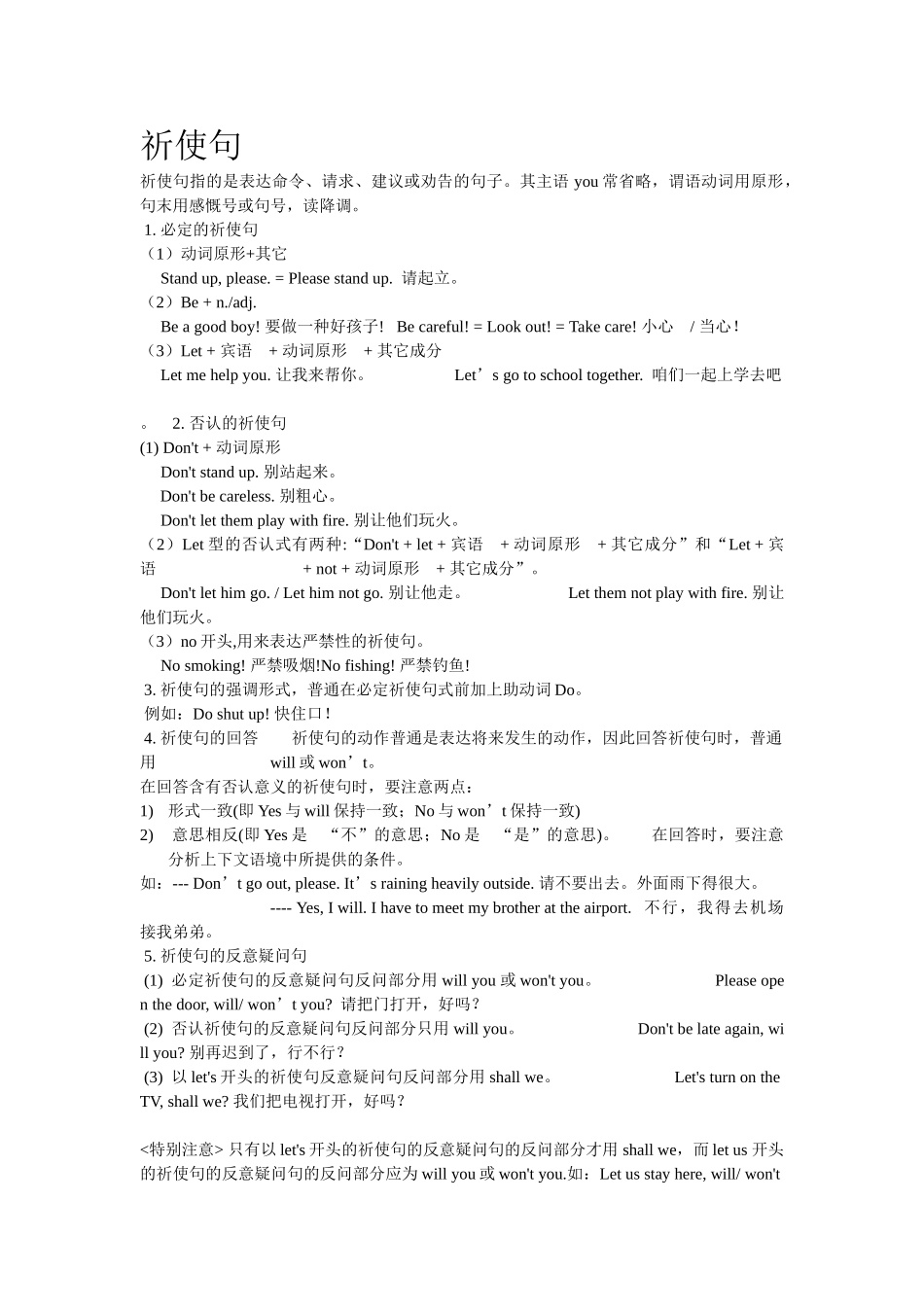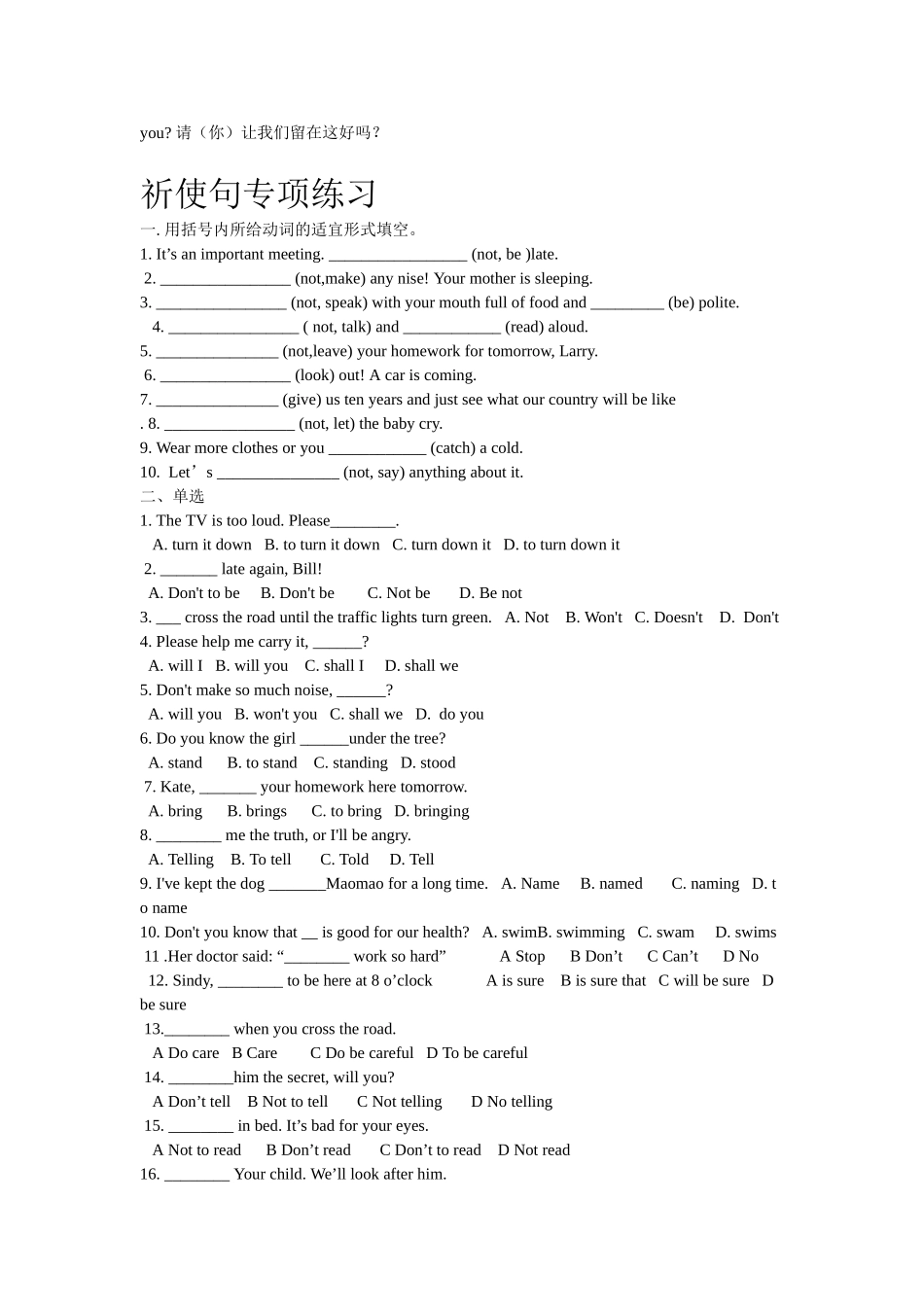祈使句祈使句指的是表达命令、请求、建议或劝告的句子。其主语 you 常省略,谓语动词用原形,句末用感慨号或句号,读降调。 1. 必定的祈使句 (1)动词原形+其它 Stand up, please. = Please stand up. 请起立。 (2)Be + n./adj. Be a good boy! 要做一种好孩子! Be careful! = Look out! = Take care! 小心 / 当心! (3)Let + 宾语 + 动词原形 + 其它成分 Let me help you. 让我来帮你。 Let’s go to school together. 咱们一起上学去吧。 2. 否认的祈使句 (1) Don't + 动词原形 Don't stand up. 别站起来。 Don't be careless. 别粗心。 Don't let them play with fire. 别让他们玩火。 (2)Let 型的否认式有两种:“Don't + let + 宾语 + 动词原形 + 其它成分”和“Let + 宾语 + not + 动词原形 + 其它成分”。 Don't let him go. / Let him not go. 别让他走。 Let them not play with fire. 别让他们玩火。 (3)no 开头,用来表达严禁性的祈使句。 No smoking! 严禁吸烟!No fishing! 严禁钓鱼! 3. 祈使句的强调形式,普通在必定祈使句式前加上助动词 Do。 例如:Do shut up! 快住口! 4. 祈使句的回答 祈使句的动作普通是表达将来发生的动作,因此回答祈使句时,普通用 will 或 won’t。 在回答含有否认意义的祈使句时,要注意两点: 1)形式一致(即 Yes 与 will 保持一致;No 与 won’t 保持一致) 2) 意思相反(即 Yes 是 “不”的意思;No 是 “是”的意思)。 在回答时,要注意分析上下文语境中所提供的条件。 如:--- Don’t go out, please. It’s raining heavily outside. 请不要出去。外面雨下得很大。 ---- Yes, I will. I have to meet my brother at the airport. 不行,我得去机场接我弟弟。 5. 祈使句的反意疑问句 (1) 必定祈使句的反意疑问句反问部分用 will you 或 won't you。 Please open the door, will/ won’t you? 请把门打开,好吗? (2) 否认祈使句的反意疑问句反问部分只用 will you。 Don't be late again, will you? 别再迟到了,行不行? (3) 以 let's 开头的祈使句反意疑问句反问部分用 shall we。 Let's turn on the TV, shall we? 我们把电视打开,好吗? <特别注意> 只有以 let's...

